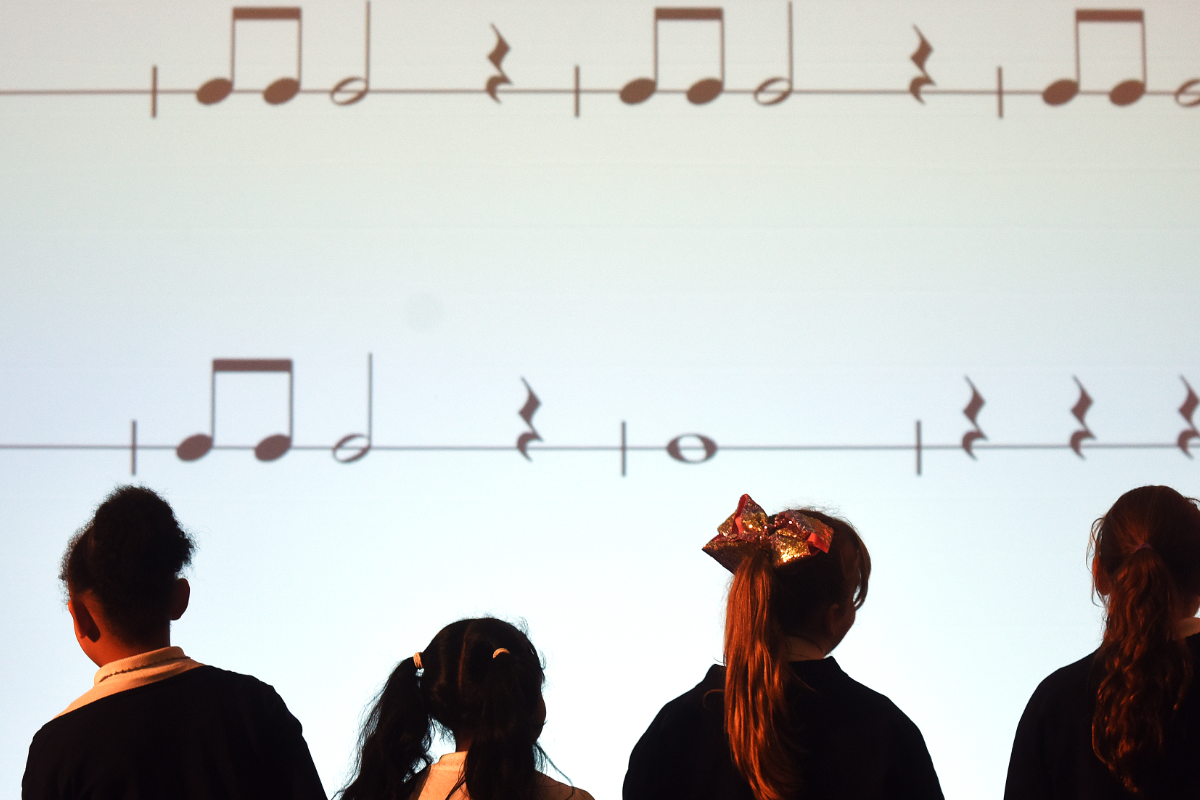
Photo: Music Mark
Large reduction in music education hub numbers confirmed
Music hubs to begin working over larger geographic areas, as application guidance for prospective Hub Lead Organisations and indicative funding for each area is published.
The number of music education hubs, responsible for facilitating the delivery of music education in local areas, is being cut by almost two thirds from academic year 2024-25, it has been confirmed.
The change forms part of the new Investment Programme for Music Hubs, which Arts Council England (ACE) is delivering on behalf of the Department for Education (DfE) and was first outlined in the government’s refreshed National Plan for Music Education, released last year.
When the investment programme begins in September 2024, the number of music hubs will fall from 116 to 43, a reduction of 63%. A bidding process to become a new Hub Lead Organisation (HLO) is being administered by ACE and will open in July.
READ MORE:
Earlier this year, a consultation on the new investment programme mooted the reduction to 43 new hubs, with the newly confirmed distribution largely mirroring the initial suggestion, barring several boundary changes.
The number of upper tier Local Authorities in each music hub ranges from one – in five instances – to 11 in one instance.
The DfE has said there will be “significant benefits” in having fewer music hubs.
The rationale for the decision, shared on ACE’s website, says hubs spread across wider geographic areas will offer “more and better strategic collaboration” and will improve the quality, breadth and consistency of music education.
It adds the hubs will be better placed to attract excellent leaders, embed broader support and identify new ways for income generation, research and innovation.
The structural change to the distribution of music hubs also reflects previous changes in other government infrastructure relevant to children and young people, such as Teaching School Hubs, Multi Academy Trusts, Local Enterprise Partnerships and Sport England’s Active Partnerships.
But the Musician’s Union (MU) has said it is concerned about the reduction. A statement on the union’s website says the move is based on untested assertions, rather than any compelling evidence.
“While the opportunities presented in the rationale sound positive, the backdrop is long-term under-funding and a demoralised workforce often on low pay and precarious contracts,” said MU National Organiser for Education and Health & Wellbeing, Chris Walters.
Walters added that practical issues remain unaddressed: “There is nothing to suggest that teachers’ terms and the cost of music education delivery to schools will be harmonised within the new hubs, which in our view undermines the DfE’s desire to see consistency across larger areas”.
Music Mark Chief Executive Bridget Whyte told Arts Professional it is not clear whether reducing the number of hub partnerships will benefit schools, families and young people because it will 'improve the quality, breadth and consistency of music education', as claimed in the DfE's rationale.
“But evidence to date of wider alliances within the existing hub network has shown gains in terms of provision, training and networking opportunities across larger geographic areas,” Whyte added.
Funding, expectations, and applications
The DfE will invest £79m annually across the 43 music hubs from 2024-25, alongside £25m in capital funding for the purchase of new instruments.
ACE has released indicative core revenue grant allocations for each hub, which are expected to be finalised in July. The funding allocations, available to view on ACE’s website, show the majority (37) will receive more than £1m each.
Capital funding allocations, which have already been confirmed, shows each hub will receive at least £199,000 to purchase instruments, with the largest receiving more than £1.5m.
A key responsibility of new HLOs will be coordinating additional funding. Application guidance from ACE stipulates at least 50% of the hub’s total income should come from sources other than the DfE’s revenue grant.
The application window for prospective HLOs will open on 18 July and close on 12 October, with all applicants expected to have an introductory conversation with the funder before applying.
ACE will accept HLO applications from a range of organisation types, including statutory bodies such as local authorities, schools and multi-academy trusts, limited companies, community interest companies and charities. The funder will also accept consortium applications from multiple organisations.
Chosen HLOs will have a wide remit of responsibilities, including building local partnerships that delivery high quality music education and music making through a programme of activity, and supporting all state-funded schools in their area.
They must also develop, implement and communicate a Local Plan for Music Education.
The hub must also have a designated inclusion lead, focused on broadening inclusive access to music education and a government and management structure that supports overall oversight.
ACE is holding a webinar on 28 June to answer questions from prospective applicants.
Join the Discussion
You must be logged in to post a comment.